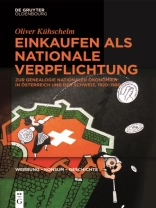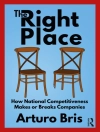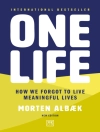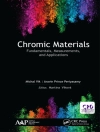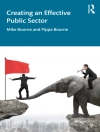Buy national propaganda has been booming again recently. But it also has a long history that clearly gained momentum in the 20th century as the moralisation of shopping seemed urgent in mass consumer societies. Not only did it serve the sale of ”national” goods, but its aims extended beyond that.
Buy national propaganda and the discourses linked to it constituted a hegemonic project. They inscribed shopping in a ”national economy”, in a triangle of state, nation and economy dominated by the propertied classes. The study analyses these relations on the basis of Switzerland and Austria from the 1910s to around 1980.
The most important addressees of this propaganda were women, children and young people. Depending on gender, age and class, they were supposed to contribute to the national economy in different ways. Nationalising discourses and practices encompassed purchase and renunciation, consumption and production. The demands appeared in conservative or social democratic, austerity-oriented or Keynesian guise.
